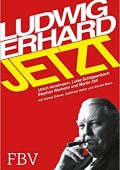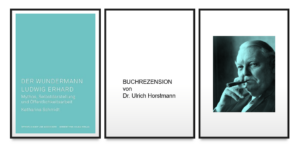How do you feel about the longer-than-expected standstill in many areas of social and economic life?
Presumably, like us, you long to meet more friends again, to travel at last or just to go to the cinema spontaneously and basically to be able to lead your usual life again.
The return to our hitherto accustomed way of life will still be a long time coming, probably by which time hardly anything will be as it was. Above all, our working world has – in our opinion – fundamentally changed as a result of Corona.
For example, the ever longer lockdown due to the political packages of measures as a result of the Corona pandemic has made us more than ever de facto permanently available online subjects. Private and professional lives are being mixed, often to the detriment of family and restful leisure time.
Are we becoming will-less objects of a ministerial bureaucracy that is failing front and centre? Was everything really well managed and above all „without alternative“?
In our opinion, there are currently some negative developments that lead to the disenfranchisement of citizens and positive digital counterforces that promote the independence of citizens.
We should do everything for independence and against disenfranchisement:
- The pandemic with undifferentiated, state-imposed lockdown rightly unsettles us all. Basic rights are easily restricted out of fear. We are dominated by bureaucratic state failures in the organisation of masks, testing and vaccination. Other countries are much faster and better organised in this respect. This promotes disenfranchisement.
- The social-utopian ideas of „unconditional basic income“ also contribute to further disenfranchisement. This is, so to speak, pure welfare state and de luxe with all-round cared-for and controlled subjects who would accept social welfare points of dictatorships.
- Digitalisation opens up many opportunities to counter the pandemic and its regulations with something good, e.g. home office, digital solutions as reforms of the state, digital SMEs, new platforms, new services from SMEs for SMEs, start-ups, etc..
Creating a fair and transparent market and competition rules for this would be a worthwhile undertaking in the spirit of Ludwig Erhard. - Under no circumstances should digitalisation and the regulation of large parts of life because of the pandemic lead to economic and state monopoly structures, which in the political sphere give impetus to authoritarian and populist movements that lead to nationalism and destroy Europe.
- Europe can only function successfully as a digital, competition-oriented, free marketplace, a „Europe of the market economy“.
The digitalisation of all areas of life is already far advanced. In many cases, it is having a positive effect. New promising business models have become possible. We are, for example, advocates of a resource-saving, platform-based sharing economy. A lot can be saved here and solidarity can be organised among each other. In our opinion, it is also true that the protection of our environment starts with ourselves and cannot be imposed from above. This is where we ourselves are called upon again and again and should increasingly network from below in order to try out better digitally secured solutions. Subsidiarity and Christian togetherness can also be realised digitally. Bureaucratic monitoring imposed from above and imposing restrictions on citizens would not help here, but would further erode trust.
In any case, we have the impression that our government tends to lag behind developments. There is still much to improve in the day-to-day work of the authorities. Digitisation for citizens? Often wrong…. Estonia should be our yardstick, not the increasing totalitarian economy of new rationing that is catching on in China. Surveillance using social and ecological points collected by recognition cameras does not fit our federally organised social and economic system of free and self-determined citizens based on trust and creativity. A supposedly better society cannot be imposed from above, but requires secured freedom.
Further bureaucratic restraints would also have consequences for our economic structure. Small and medium-sized businesses are increasingly threatened by over-regulation, which favours the big providers. A capitalism that tolerates monopolies and cartels is not in the spirit of Ludwig Erhard.
Experience has shown that social utopians tend to favour large corporations, in which their ideologically conformist functionaries can better develop. But this is at the expense of society and leads to economic inefficiency.
Participation of all through competition is more important than ever and now only possible in the digital world. This is the only way to create „digital prosperity for all“ in the sense of Ludwig Erhard.
A deepening division of society is threatening. Many among us are no longer integrated in the work process and are fobbed off with money. Inclusion should be a matter of course and not have to be imposed from above. Superficially, the social utopians are concerned with ecology, the climate and the most unified political stance possible towards supposed democratic disruptors. This sounds good, but increasingly, in our impression, it also excludes. Many citizens are deeply alienated by the government’s ritualistically repeated narratives that do not allow for contradiction. This further gambles away trust.
Because, perhaps formulated somewhat cynically: The division of society could even be accepted. Social utopians or system overcomers could sense their chance. The ’sweet poison‘ of the pandemic compensation payments administered weakens personal responsibility. This has serious long-term consequences. Permanent aid increasingly overrides one’s own motivation. Motivation is thus destroyed. Fewer and fewer people are „up for it“, because it is no longer worth it. The money seems to come one way or another. The state or the EU will sort it out.
The creativity of fellow citizens who are willing to work is thus paralysed or even largely suspended.
This development of the disenfranchisement of the subjects is reinforced by the demand for an unconditional basic income. Since everyone gets money for doing nothing, personal responsibility is eliminated. In return for the money they get (acts like a negative tax) they can silently opt out of political events. In addition, there is the danger of increasing impoverishment, social withdrawal and consequent radicalisation in permanent isolation.
If the unconditional basic income were to come, the social utopians would also have „abolished work“ and created a workers‘ paradise in the sense of Karl Marx and Ferdinand Lassalle. This is also an old wish of social utopians who only think of redistribution. But that would not be a ‚workers‘ paradise‘, but at best for the functionaries and small-minded bureaucrats.
More personal responsibility and no unconditional basic income, help for self-help would be important to prevent large parts of our population from slipping. The lower middle class in particular is threatened, the Corona pandemic and the lockdown measures acted as an amplifier here. More savings and property promotion, as Ludwig Erhard enforced and repeatedly propagated, are more important than ever. Not to be forgotten is also the gain in self-confidence of those who manage to rise through their own efforts in a fairly organised economic system. For them, the state should remain a helper (stirrup holder) and not subsidise exclusion (as was done too unilaterally during the pandemic).
Promoting and demanding remains important; an unconditional basic income should be rejected for ethical and Christian reasons. It simply does not correspond to our image of humanity. It would also be a fatal step to further divide society into a few well-informed achievers and the excluded, whose poverty and immaturity would be perpetuated.
Enabling „prosperity for all“ again in the digital age!
Ludwig Erhard wanted everyone to participate as much as possible in order to make ‚prosperity for all‘ possible. He succeeded in his time. Even the smallest self-employed business was more in his focus than the ‚big economy‘ with managers who aimed for state-like monopolies out of self-interest. Now his demand for personal responsibility would be increasingly destroyed by the rule of unconditional basic income. After all, money is given for doing nothing.
Social utopians are also suspicious of small and medium-sized entrepreneurs. They do not fit into their world view of an exploitative economy that is to be determined by the interests of functionaries. Competition on merit is alien to such ideologists. Successful citizens and entrepreneurs who are independent of the state do not fit into their world view.
The new subject world could be accelerated by the social restrictions with the Corona pandemic and lead to an even greater restructuring of our society. With the introduction of an unconditional basic income, even migration could be directed worldwide. This would be, if you will, the further development of „helicopter money“, i.e. the distribution of money by the state. In a completely digitalised money system, money could be allocated to citizens simply according to their calculated neediness and the social points system according to social good conduct – independent of any provision of services. Even a distribution differentiated by region – because of different costs of living – could then be made.
With such a controlled income, provided according to guidelines from above, people could be made docile, ‚immobilised or cold‘, if desired by a less democratically oriented government.
If the citizens controlled in this way do cause trouble, they could be observed by means of tracking their movement data and their liberties restricted. Performance and remuneration would then be decoupled and replaced by good behaviour in the system. State guidelines in conjunction with digital corporations would then become binding, not the wishes of consumers and citizens in general, as was the natural maxim of action during the reign of our first post-war Chancellor Konrad Adenauer and Economics Minister Ludwig Erhard. Without these principles, economic dynamisation would not have been possible. Planned economy was rightly a taboo at that time. The failures in the Soviet Union and other communist satellite states were too obvious. Our politicians today tend to lock up (and curtail civil liberties) and engage in pure power politics. They cannot even manage to secure trust among themselves. Never before has Europe appeared as incompetent, corrupt and divided as it does today. In this way, they are destroying the work of building European politicians after the war.
Democracy must remain connected to the people and be guided by the principles of the rule of law, otherwise it is not worth the paper it is written on. This is precisely why we have been calling for a binding European constitution for the citizens for years. For all the other activism that is evident above all in spending money at the expense of future generations, there is a real need for action here. In our book „SOS Europe“ we have clearly pointed out this grievance.
Stephan Werhahn, Director of the Institute Europe of Market Economies and grandson of Konrad Adenauer
Ulrich Horstmann, Director of the Institute Europe of Market Economies






